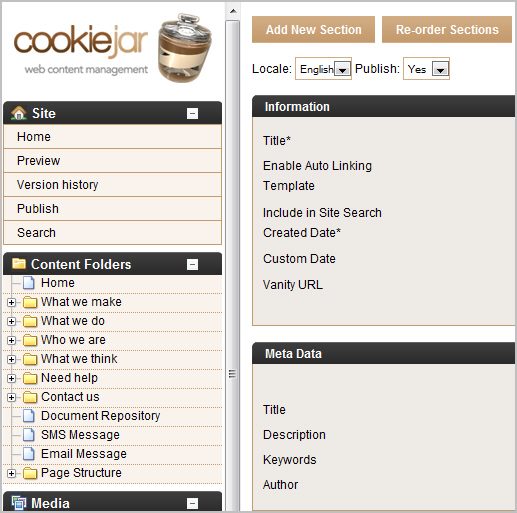
Hands in the Cookie Jar
The latest version of Cookie Jar (which supersedes the company's WebDeck product) has been bolstered with an updated interface, improvements in usability, a major overhaul of the content model and the addition of in-context XHTML editing.
Site design integrates with Flash or Director while it packs in Web 2.0 interactive features like forums, competitions (via SMS if revenue is pressing), events management and payment systems.
Versioning works at both a site and article level allowing owners to keep a firm record on changes and updates.
The main attractions of Cookie Jar are that it can handle multiple sites/URLs through a single Web CMS record and have individual or shared content across many sites. Each piece of content can also be made localized or multilingual, depending on site needs.
Support for Multiple Languages
For example, each content type can be selected as a particular language and further content will default to that type. Solid State has had lots of experience with multilingual sites and developed its solution to automate and speed up related issues (for example, some sites in other languages can disable irrelevant or unwanted content or pages).

Find bags of features crammed in the jar
Personalized Content
It can also deliver personalized content based on user preferences or their navigation journey via behavioral targeting and has advanced SEO tools.
Open Standards, Not Open Source
Cookie Jar is Java-based and uses open standards, but is not itself open source and it can make use of various APIs for third party application integration.
Pricing for Cookie Jar shows its business roots, charging £10,000 (US$ 16,700) for an enterprise license with unlimited users on a single server. £5,000 (US$ 8,350) for each additional server for redundancy and load balancing plus £1,500 (US$ 2,500) per additional site, when using multisite functionality.
